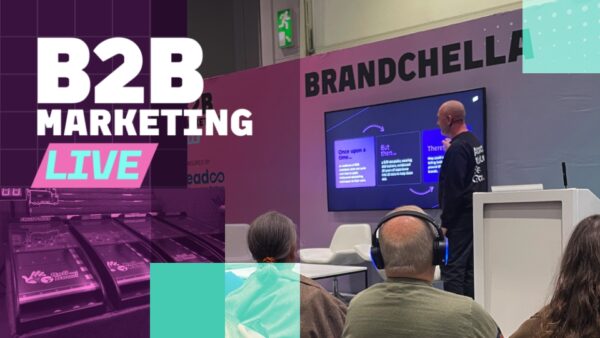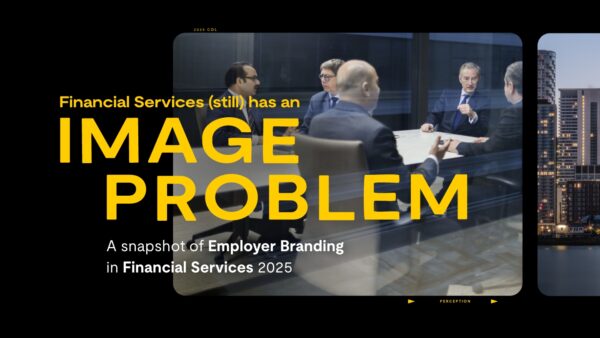Launching the Taskforce's storytelling campaign
This week, I joined policymakers, financial services professionals and taskforce members at the City of London’s Women Pivoting to Digital Taskforce spring conference to launch their storytelling campaign.
 From left to right: Julianne Miles, Co-Founder of Career Returners, Alicia Osinibi, Cyber Security Control officer at National Highways, Carol Hu, Marketing Manager at Rationale, and Joann Egunjobi, Data Engineer for Buy a Gift.
From left to right: Julianne Miles, Co-Founder of Career Returners, Alicia Osinibi, Cyber Security Control officer at National Highways, Carol Hu, Marketing Manager at Rationale, and Joann Egunjobi, Data Engineer for Buy a Gift.
It was an energising room to be in. There was both passion and urgency to address a sector-wide skills gap by tapping into a talent pool that already exists.
But how do we connect the dots between C-suite, budgetholders, mid-career women, and employers to create tangible pathways that work?
The conference marked a significant milestone: the debut of the Storytelling Campaign that we’re proud to help shape as the Taskforce’s content partner. The video we created features a series of real-life, mid-career pivot experiences that inspired the room, igniting the call for all of us to amplify these powerful stories and seek those that have yet to be told.
The message that echoed throughout the day was clear: it’s no longer just about raising awareness. It’s about changing the narrative.
 The Taskforce brings employers, government, and third sector organisations together to tackle digital talent shortages in the UK by promoting mid-career female career changers as an untapped talent solution.
The Taskforce brings employers, government, and third sector organisations together to tackle digital talent shortages in the UK by promoting mid-career female career changers as an untapped talent solution.
What the narrative has been
It’s no secret that the tech and financial services industry has built a reputation for being male-dominated, rigid, and inaccessible to those without technical qualifications or conventional career paths. The result? A sector losing out on an entire demographic of talent: mid-career women, rich in emotional intelligence, life experience, systems thinking skills, and resilience, but invisible to traditional recruitment lenses.
However, Common Councillor and Chair of the Taskforce Caroline Haines noted that in reality, tech and tech-adjacent roles now provide an equal playing field. With a multitude of transferable skills, you don’t need a computer science or engineering degree anymore to pursue a role in tech.
These women often don’t see themselves as “tech people,” and more worryingly, this is reinforced by employers. As Julianne Miles MBE put it, they didn’t know reinvention was even possible and they’ve rarely been shown what it looks like. We must rewrite and change how we represent who “tech people” are.
That’s the power of storytelling.
Storytelling as infrastructure, not just inspiration
What this campaign and the wider Taskforce movement stress is that stories aren’t just marketing. They are infrastructure. They are how we shift perception, shape culture, rewrite hiring logic, and show what’s possible through real examples.
Amelia Axelsen, Senior Programme and Policy Manager explained that the average person changes careers 5-7 times in their life for a range of reasons, whether that be to find greater purpose, more flexibility, or greater earning potential. At present, there are many programs to get girls into STEM and provide routes to entry through university, but there are very few at the mid-career stage. In fact, only 25% of digital roles are filled by women, and the mid-career stage is where their careers tend to stall and where we see the gender pay gap widen. Additionally, women’s roles are most vulnerable to automation and AI.
Amelia set a powerful tone. We need to make sure the tech we build works for everyone by not leaving anyone out. We need storytellers to break down misconceptions and change the narrative. We need to go beyond being a mentor and be active sponsors that help create real pathways. And we can not wait for the talent pipeline to fix itself.
She closed with a compelling call to action: What story can you share? What barrier can you break? What seat can you offer at the table?
Julianne Miles MBE, co-founder of Career Returners, highlighted the invisible barriers from outdated assumptions to lack of structured pathways that stop women from believing a pivot is possible. Her call was simple: employers must act as allies and collaborators.
Then came the stories that proved why this matters.
 Kat Jozwiak, Cloud Engineer at Nationwide
Kat Jozwiak, Cloud Engineer at Nationwide
Real stories from real people
Alicia Osinibi was a math teacher for 14 years and wanted a career change during her third maternity leave.
She joined the CAPSLOCK programme when a speaker sharing their personal story resonated with Alicia and changed the trajectory of her career. With that moment of connection, she discovered how good she was at disseminating complex information and communicating it in a way that makes sense to the people who are listening. Now, as a Cyber Security Control Officer at National Highways, she is doing what she loves and feels a duty to share her story to impact others the same way her mentor did for her.
Joann Egunjobi, a Data Engineer for Buy a Gift, originally moved from marketing into tech via a bootcamp after losing her job during COVID. 2 months after the boot camp, she got a job that now makes her feel fulfilled in her working life. Since then, she’s seen tech evolve every day and open up many tech and tech-adjacent opportunities.
Kat Jozwiak talked about her journey with neurodivergence and the urgent need to normalise non-linear paths into tech.
After working in retail, sales, insurance and more, she’s now a Cloud Engineer at Nationwide. During her career pivot, she was fortunate to be part of an organisation that invested in people and allowed her to take an 18 month on-the-job learning program. In her journey into tech, she saw how much representation mattered and how that happens by including them in stories.
Adam Baldwin, Head of Legal at Modulr spoke candidly on the importance of allyship and urged employers to act with intention.
There has historically been an unequal burden on women to seek out roles without tangible pathways and appropriate, tailored support. There is the common sense, ethical side of fairness, but there is also the business side, where there are so many transferable skills and life experiences that we’re not utilising. Not only that, but when teams are staffed in a homogenous way, they’re not as efficient or creative, causing businesses to miss out on potential. Adam called for tangible sponsorship within organisations across these three actions:
- Provide funding and engage c-suites. If you’re in the c-suite, say something. If you have access to the c-suite, say something.
- Ensure pathways lead to real jobs so they’re worth the investment for women and organisations.
- Be active – help rewrite the narratives by promoting and amplifying stories as much as you can. Get your colleagues and managers behind the shift. The more people talk about something, the more normal it becomes.
 The Storytelling panel at the Women Pivoting to Digital Spring Conference
The Storytelling panel at the Women Pivoting to Digital Spring Conference
A strategic role for brand and content
We often speak with financial services firms who are committed to bridging the digital skills gap but their efforts are fragmented and overlook the impact of cross-sector collaboration.
When Rationale creates campaigns, or storytelling strategies like this one, we’re not just producing content. We’re helping brands build compelling narratives that people can believe in. Among employees, stakeholders, and decision-makers at the very top who, as Adam put it, must say something, do something and be an active sponsors.
A call to industry
This campaign is a start. A visible, vocal, cross-sector movement that makes the case for change in culture and practice, and we’re proud to take part.
If you’re serious about bridging your own skills gap or supporting career changers, we can help you connect the dots, from insight to strategy to execution.
Because great storytelling is good for your brand and has an extensive business impact, from better recruitment and retention to customer loyalty.
Talk to us about how you can help change the narrative.








